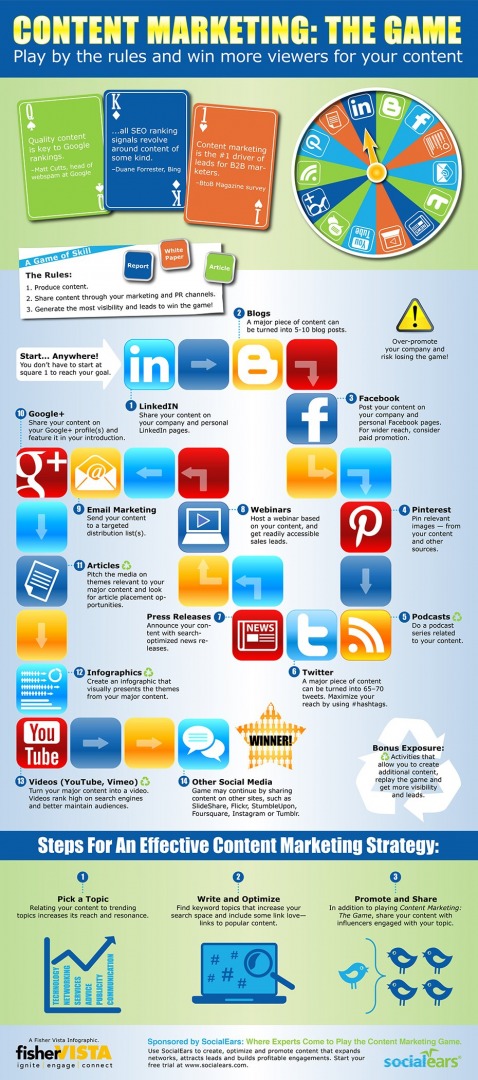
Businesses have to do more these days to engage their customers. It is not enough to just offer a sales pitch anymore. Those organisations that are getting ahead are ones that give their customers more, such as by offering more information, opinions and views, or entertainment and other content that people may find valuable. According to Alexander Jurkowitz (2014) of the Harvard Business Review:
The success of content marketing has radicalised the way companies communicate… The content marketing revolution signals more than a mere marketing fad. It marks an important new chapter in the history of business communications: the era of corporate enlightenment.
Jurkowitz states that 90% of companies now market themselves using content in the ways described above. These organisations look at what customers want in terms of data rather than just churning out whatever they feel like. It is reported that consumers have strong preferences in this area. For example, it is stated that the Content Marketing Institute carried out a study that found that70% of customers would prefer to learn about a company through reading an article rather than looking at an advertisement. There is also the increasing possibility of taking action in real time to respond to the changing situation to help businesses improve their brand identities.
In particular, brand publishing has been helpful with getting organisations to own ideas, which includes coming up with them and using them for their benefit. When organisations are good at this they can work throughout the organisation to build expertise and an intellectual focus. Large companies are even becoming media companies in their own right, or carrying out more research than in the past. This has led in some cases to the onset of in-house broadcasting, and large organisations have even been stealing away journalists to try and emulate a successful media company. The reason for this is that journalism training and expertise specifically focuses on how to grab a reader’s attention and maintain their interest to keep reading, and journalists develop good quality copy.
A development of storytelling within organisations along with an increase in integrity editorially has started to impact the whole marketing genre. This has led to a situation where organisations are no longer simply selling their wares, and rather, they are researching, developing and publishing information. This has an additional benefit of organisations becoming of greater value to society as a whole. Content has also created opportunities for companies that did not even exist prior to the turn of the millennium. In the past, organisations were much more careful about information in some ways, taking great care in particular over what they considered to be trade secrets. Nowadays companies can use their data to reel in audiences, and ultimately convert them to customers.

One ground breaking company that has done really well through brand publishing is Red Bull. Red Bull has its own content production company called Red Bull Media House. The content it produces is extremely interesting, drawing customers in. At the same time, it has made this content section of its business extremely profitable, and it has already led to a lot of new ideas for the business. Another company explained to be innovative in this regard is General Electric. This organisation has taken internal knowledge on a variety of different subject areas and has transformed it into content that grabs attention in the form of articles, GIFs and corporate microsites.
There are also other examples of brands that have been doing excellently in this area. One is Equinox, which uses Q to present content related to fitness, such as dietary advice, workouts while on the road and personal trainer fitness tips, and from this it is able to increase memberships, while no membership is actually required to take advantage of the content. Equally, Shutterstock has created content that is considered to be cultured and entertaining, while informative and educational at the same time. People return to the site for the quality of the information, regardless of whether they purchase the pictures available on the site. It is these types of activities that allow businesses to progress beyond just what they sell.
Unfortunately, few brands are currently using content innovatively in the ways described. It is reported that nine in 10 consumer marketers adopt content into their strategies, but few have seen where the real benefits are in doing so, and have acted on it. Companies need to start becoming enlightened so they can draw in more customers and become more competitive. Those that do may succeed beyond their wildest expectations.

Paula Newton is a business writer, editor and management consultant with extensive experience writing and consulting for both start-ups and long established companies. She has ten years management and leadership experience gained at BSkyB in London and Viva Travel Guides in Quito, Ecuador, giving her a depth of insight into innovation in international business. With an MBA from the University of Hull and many years of experience running her own business consultancy, Paula’s background allows her to connect with a diverse range of clients, including cutting edge technology and web-based start-ups but also multinationals in need of assistance. Paula has played a defining role in shaping organizational strategy for a wide range of different organizations, including for-profit, NGOs and charities. Paula has also served on the Board of Directors for the South American Explorers Club in Quito, Ecuador.











